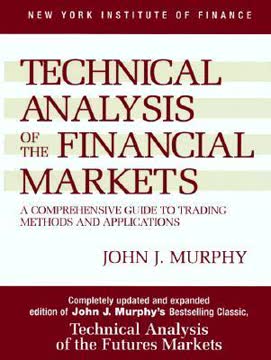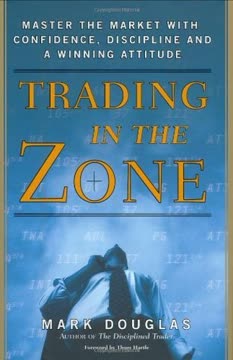つの重要なポイント
1. トレーディングは市場分析だけでなく心理的なゲームである
最も基本的なレベルで、私たちの考え方には問題がある。
メンタルフレームワークが重要である。 トレーディングの成功は、市場分析よりも心理的アプローチに依存している。多くのトレーダーは市場パターンや指標の理解に集中するが、自分自身の心を管理する重要な側面を見落としている。最高のトレーダーは、逆境にあっても規律を保ち、集中し、自信を持ち続ける独自の心構えを持っている。
感情のコントロールが重要である。 恐怖、欲望、その他の感情はトレーディングの決定に大きな影響を与え、しばしば悪い結果を招く。成功するトレーダーはこれらの感情を認識し、管理する方法を学び、それがトレーディング戦略に干渉しないようにしている。彼らは客観性を保ち、困難な市場状況に直面しても計画を守る。
トレーダーの心構えを育てる。 一貫した成功を収めるためには、市場が伝えることに基づいてトレードの出入りを柔軟に行うための心構えを育てる必要がある。これには以下が含まれる:
- 不確実性を受け入れる
- 確率で考える
- 規律を保つ
- 結果だけでなくプロセスに集中する
- 継続的に学び、適応する
2. 感情的な偏見を克服するために確率的な心構えを育てる
意図した以上に簡単に失うことができる環境で自信を持って機能するためには、自分自身に絶対的な信頼が必要である。
不確実性を受け入れる。 確率的な心構えは、どのトレードの結果も不確実であるが、特定のパターンは成功の確率が高いことを認識する。このアプローチは、本質的に不確実な環境で確実性を求める感情的な落とし穴を避けるのに役立つ。
エッジに集中する。 個々のトレードの結果を予測しようとするのではなく、統計的なエッジを特定し、それを活用することに集中する。これには以下が含まれる:
- 有利なリスク・リワード比を持つパターンを認識する
- 損失がゲームの一部であることを理解する
- 個々のトレードではなく、一連のトレードでパフォーマンスを評価する
期待を管理する。 確率で考えることで、トレーダーは勝ち負けに対する期待と感情的な反応をよりよく管理できる。これにより、個々のトレードの心理的影響が軽減され、一貫した意思決定が可能になる。
3. 市場の本質的な不確実性を受け入れる
何が起こるかはわからない。
未知を受け入れる。 市場は無数の要因に影響され、その多くは予測不可能である。この現実を受け入れることは、感情的な安定を保ち、健全なトレーディングの決定を下すために重要である。
変化に適応する。 市場の状況は常に進化しており、過去にうまくいったことが将来もうまくいくとは限らない。成功するトレーダーは柔軟性を保ち、市場の動態に応じて戦略を適応させる。彼らは:
- 仮定を継続的に再評価する
- 新しい情報や視点に対してオープンである
- 必要に応じてアプローチを調整する
さまざまなシナリオに備える。 何が起こるかを正確に予測しようとするのではなく、複数の潜在的な結果を考慮し、それぞれに対する計画を持つべきである。この準備は不安を軽減し、不確実性に直面しても自信を持って意思決定を行うことができる。
4. 自己認識を育て、思考を監視する
一貫性を生み出すプロセスの最初のステップは、自分が何を考え、言い、行っているかに気づき始めることである。
メタ認知を発展させる。 自己認識は、トレーディングの成功に対する心理的障壁を特定し、対処するために重要である。自分の思考、感情、行動を観察することで:
- 悪い決定につながるパターンを認識する
- 進歩を妨げる信念を特定する
- 衝動的なトレードをする前に自分をキャッチする
マインドフルネスを実践する。 定期的なマインドフルネスの練習は、トレーダーが自分の精神状態や感情的な反応に対する認識を高めるのに役立つ。この認識の向上により、感情の調整がしやすくなり、より合理的な意思決定が可能になる。
トレーディングジャーナルをつける。 トレードの前、中、後の思考、感情、決定を記録することで、自分の心理的パターンに関する貴重な洞察を得ることができる。このジャーナルを定期的に見直すことで、改善点を特定し、ポジティブな習慣を強化することができる。
5. 信念がトレーディングの現実を形作る - 賢く選ぶ
信念は独自の生命を持ち、したがって現在の形を変えようとする力に抵抗するようである。
信念の力を認識する。 トレーディング、金銭、成功に関する信念は、市場での認識、決定、行動に大きな影響を与える。これらの信念を特定し、検討することは、トレーディングパフォーマンスを向上させるために重要である。
制限的な信念に挑戦する。 多くのトレーダーは、無意識のうちに成功を妨げる信念を持っている。一般的な制限的な信念には以下が含まれる:
- 「簡単にお金を稼ぐ価値がない」
- 「市場は私を狙っている」
- 「重要なときにいつもミスをする」
これらの信念を特定し、挑戦することが進歩のために不可欠である。
力を与える信念を育てる。 制限的な信念を、トレーディングの目標をサポートする信念に置き換える。例としては:
- 「結果に関係なく、すべてのトレードから学ぶことができる」
- 「市場は機会に満ちており、それを活用するスキルを持っている」
- 「トレーディングシステムとそれを一貫して実行する能力を信頼している」
6. 一貫性は信念とトレーディング原則の整合から生まれる
一貫性は、トレーディングに特有の基本的な思考戦略を中心とした心の状態である。
重要な原則を内面化する。 一貫したトレーディングの結果は、以下のようなコアトレーディング原則を深く内面化し、整合させることから生まれる:
- トレードに入る前にリスクを定義する
- よくテストされたトレーディングシステムに従う
- 結果に関係なく感情の均衡を保つ
- 継続的に学び、改善する
内部の葛藤を解決する。 トレーディング原則と既存の信念や習慣との間の葛藤を特定し、対処する。これには、思考や行動を再構築するための意識的な努力と練習が必要である。
サポートする習慣を作る。 トレーディング原則を強化するルーチンや実践を開発する。これには以下が含まれる:
- トレーディングプランの定期的な見直し
- 毎日の瞑想やビジュアライゼーションの練習
- システマティックなトレード後の分析
7. 主観的なトレーディングに移行する前に機械的な段階をマスターする
トレーディングの機械的な段階は、信頼、自信、確率で考える能力など、一貫した結果を生み出すためのトレーディングスキルを構築するために特別に設計されている。
構造から始める。 機械的な段階では、厳密で明確に定義されたトレーディングシステムに従い、逸脱しない。このアプローチはトレーダーに以下を助ける:
- 規律と一貫性を構築する
- システムと自分自身への信頼を育てる
- トレードの結果に繰り返し触れることで確率で考えることを学ぶ
最初は裁量を排除する。 主観的な意思決定を排除することで、トレーダーはシステムを完璧に実行し、感情的な干渉なしに市場の行動を観察することに集中できる。
徐々に柔軟性を導入する。 トレーダーが機械的なシステムに経験と自信を持つようになったら、コア原則とリスク管理ルールに導かれながら、徐々により裁量的な要素を導入することができる。
8. 失敗ではなく学習の機会としてミスを受け入れる
市場のすべての瞬間はユニークである。
エラーをポジティブに再構築する。 ミスを失敗と見なすのではなく、トレーディングを改善するための貴重なデータポイントと見なす。各エラーは、心理的パターンや改善すべき領域に関する洞察を提供する。
判断せずに分析する。 特に負けたトレードを見直す際には、客観的で感情的でない視点を保つ。焦点を当てるべきは:
- 経験から何を学べるか
- この知識を将来のトレードにどのように適用できるか
- トレーディングプロセスの具体的で実行可能な改善点
レジリエンスを育てる。 長期的なトレーディングの成功には、挫折から立ち直る能力が重要である。練習すること:
- 感情を認めつつもそれに支配されない
- トレーディングプランと長期目標に再集中する
- 結果だけでなく学習プロセスを祝う
9. 自己規律はトレーディングの信念と習慣を変える鍵である
自己規律を、目標や欲望が精神環境の他の要素(信念)と対立する場合に、注意を目標や欲望の対象に向け直すための精神的技術と定義する。
規律の役割を理解する。 自己規律は生まれつきの特性ではなく、現在の習慣と望ましいトレーディング行動のギャップを埋めるための学習されたスキルである。
一貫して練習する。 新しいトレーディング習慣と信念を発展させるには、一貫した努力が必要である。これには以下が含まれる:
- トレーディング原則の定期的な見直しと強化
- 非生産的な思考や行動をキャッチし、方向転換する
- 不快であってもトレーディングルールを一貫して適用する
外部のサポートを活用する。 規律を強化するためのツールやリソースを利用する:
- アカウンタビリティパートナーやトレーディンググループ
- トレーディングジャーナルやパフォーマンストラッキングソフトウェア
- 定期的なコーチングやメンタリングセッション
最終更新日:
FAQ
What's Trading in the Zone about?
- Focus on Psychology: Trading in the Zone by Mark Douglas emphasizes the psychological aspects of trading, highlighting how a trader's mindset can significantly impact their success.
- Mindset for Consistency: The book argues that successful traders think in terms of probabilities and accept risks without emotional discomfort, aiming to develop a winning attitude.
- Market Neutrality: Douglas explains that the market is neutral, and traders must learn to perceive opportunities without fear or past biases, which is crucial for success.
Why should I read Trading in the Zone?
- Improve Performance: The book helps identify and overcome mental barriers that hinder trading success, offering insights into developing an effective trading mindset.
- Learn from Experience: Douglas shares practical advice and strategies from his extensive experience as a trading coach, applicable to real trading situations.
- Shift Perspective: It encourages redefining the relationship with the market, focusing on opportunities rather than threats, leading to a more enjoyable and profitable trading experience.
What are the key takeaways of Trading in the Zone?
- Mindset is Crucial: A trader's mindset is key to success, with an emphasis on thinking in probabilities and accepting trading risks.
- Emotional Control: Managing emotions like fear and pain is essential for maintaining discipline and making sound trading decisions.
- Beliefs Influence Perception: Traders' beliefs shape how they perceive market information, and changing these beliefs can improve decision-making and performance.
What are the best quotes from Trading in the Zone and what do they mean?
- "The market is neutral.": This highlights that the market has no agenda, helping traders detach emotions from market movements.
- "You don’t need to know what’s going to happen next to make money.": Emphasizes accepting uncertainty and focusing on strategies and probabilities rather than predictions.
- "The best traders think differently.": Suggests that successful traders have a unique mindset that allows them to navigate market complexities, essential for consistent results.
How does Mark Douglas define a successful trader in Trading in the Zone?
- Psychological Mastery: Successful traders manage their emotions effectively, making rational decisions based on market conditions.
- Adherence to Principles: They predefine risk and accept trade uncertainty, using strategies similar to casinos and professional gamblers.
- Consistent Execution: They consistently execute their trading plan without deviation, crucial for long-term profitability.
What is the trader's mindset according to Trading in the Zone?
- Thinking in Probabilities: Involves understanding that every trade has a probable outcome, helping traders remain objective.
- Embracing Uncertainty: Successful traders accept market unpredictability, allowing them to act without fear.
- Self-Trust and Discipline: Emphasizes trusting oneself and maintaining discipline, building confidence in strategies and execution.
How does Trading in the Zone define risk?
- Risk Acceptance: Risk is an inherent part of trading that must be accepted without emotional discomfort, understanding losses as natural.
- Emotional Response to Risk: Many traders struggle with risk's emotional aspects, leading to poor decisions; managing these emotions is crucial.
- Predefining Risk: Advocates for predefining risk before trades to maintain control and avoid emotional reactions, essential for discipline.
What are the common psychological barriers traders face in Trading in the Zone?
- Fear of Loss: A paralyzing fear of losing money can prevent trade execution, often stemming from past experiences.
- Overconfidence and Euphoria: Winning streaks can lead to overconfidence and reckless behavior, resulting in significant losses.
- Blame and Responsibility: Traders often blame the market for losses instead of taking responsibility, hindering learning and growth.
How can I develop a winning attitude as described in Trading in the Zone?
- Focus on Learning: View each trade as a learning opportunity rather than just a chance to make money, reducing emotional weight.
- Accepting Uncertainty: Embrace market uncertainty and understand losses as part of the process, allowing confident action.
- Building Self-Trust: Reinforce belief in one's abilities and decisions, fostering a positive mindset and self-trust.
What is the significance of perception in trading according to Trading in the Zone?
- Perception Shapes Reality: A trader's perception of market information influences their decisions, leading to success or failure.
- Emotional Filters: Emotional states can distort perception; recognizing and managing these filters is crucial for objectivity.
- Opportunity vs. Threat: Focus on perceiving opportunities rather than threats, leading to a more positive trading experience.
How does Trading in the Zone suggest overcoming fear in trading?
- Understanding Fear's Source: Fear often stems from past experiences and beliefs about the market; recognizing this helps detach emotions.
- Developing a Risk Framework: Create a framework for understanding and accepting risk, reducing fear and increasing confidence.
- Mindfulness and Presence: Staying present and focused helps avoid fear, leading to clearer thinking and better decision-making.
What are the five fundamental truths about trading in Trading in the Zone?
- Anything Can Happen: Emphasizes market unpredictability and the need for an open mindset.
- You Don’t Need to Know: Success doesn't require knowing future outcomes, reducing pressure to predict.
- Random Distribution of Wins and Losses: Accepts that wins and losses are randomly distributed, aiding in loss acceptance.
- An Edge Indicates Higher Probability: An edge suggests a higher probability of success, crucial for informed decisions.
- Every Moment is Unique: Recognizes that past patterns don't guarantee future results, encouraging adaptability.
レビュー
本書『Trading in the Zone』は、主に肯定的な評価を受けており、読者はそのトレーディング心理学とマインドセットに焦点を当てた内容を称賛している。多くの人々が、一貫性を育み、感情的な障壁を克服するために非常に貴重であると感じている。一方で、批評家は繰り返しが多く、ポップ心理学の過剰使用を指摘している。本書は、確率で考えること、リスクを受け入れること、市場情報に対して中立的な視点を持つことを強調している。初心者のトレーダーにとっては必須と考える読者もいれば、実践的な技術が不足していると感じる人もいる。総じて、レビューアーはトレーディングのメンタル面に取り組む本書のユニークなアプローチを高く評価している。
Similar Books















